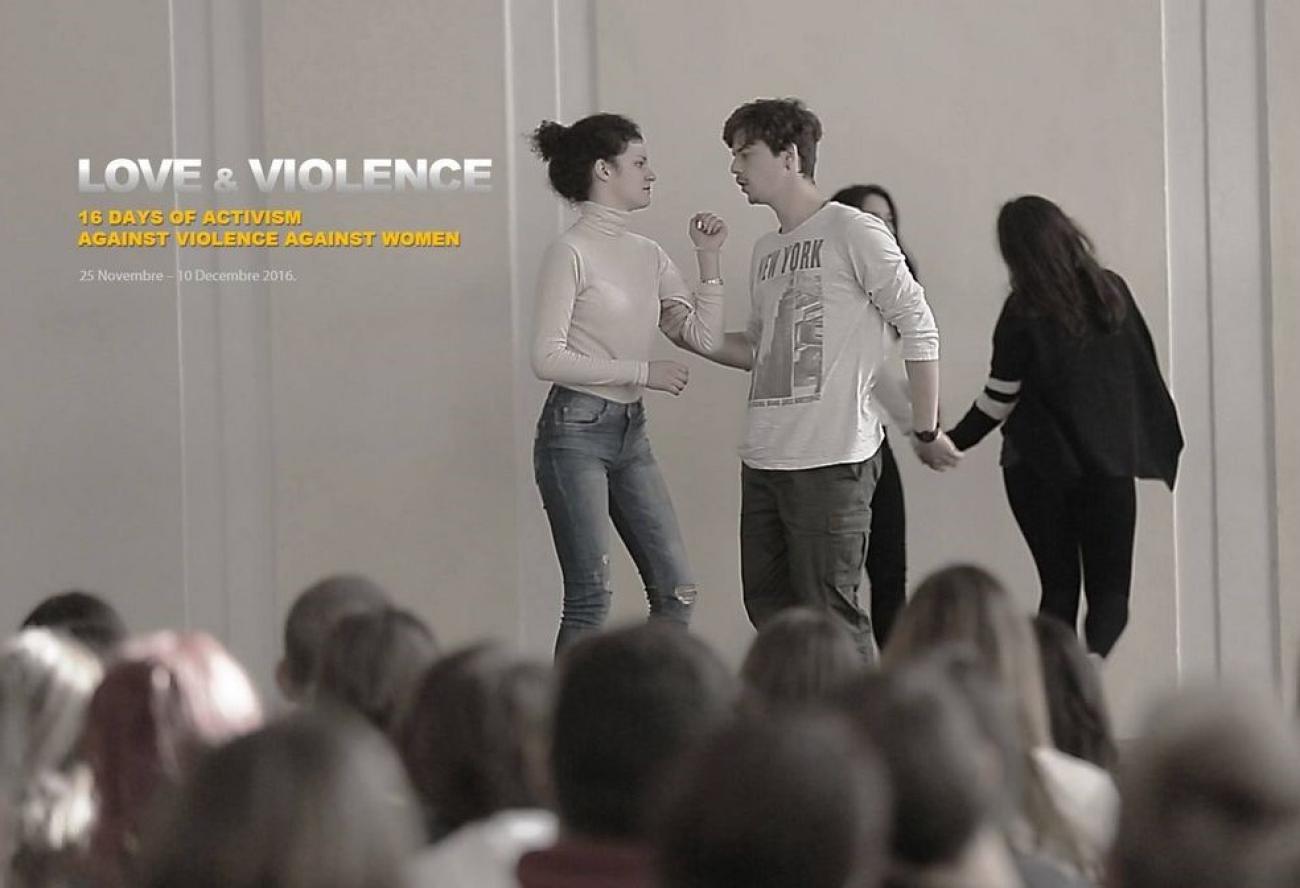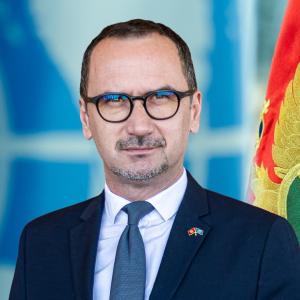"I'm sick of violence," says 19-year-old Pavle Prelević, explaining his motivation to take part in the play "Love and violence", which was produced within this year's campaign 16 Days of Activism Against Violence Against Women. Through an innovative and participatory way, the play is tailored for high school students to help them recognize and better understand different forms of violence against women, not just those that are visible.
More than 300 high school students from the North, central part and the South of Montenegro had the oportunity to see this pilot initiative which combines multiple components on the stage – playing real-life situations concerning male-female relations among high school students, interventions from experts in key moments, as well as audience participation.
“Each of the situations presented appeared quite realistic to me and as something we can experience in everyday life,” said 18-year-old Andrea Mićanović from Slobodan Škerović Gymnasium, adding that special value was inclusion of students from audience in the play. „Communication which actors had with us from the audience really moved us and made us thinking,” says Mićanović.
Interactive theatre play directed by Peter Pejaković is a result of the partnership between the United Nations System in Montenegro, the Ministry of Education, experts in the areas of education and fight against gender violence, and non-governmental organisation "Empty Space", which gathers a group of young amateur actors who also appeared in this the play.
"I'm sick of violence,"
Pavle Prelević, 19-year-old actor in the play
“We were working on true events that happened to us and to our friends. Nothing was invented,” said one of the actors 18-years-old Pavle Bogojević. His colleague on the stage, 16-years-old Marija Marković, highlighted certain emotional challenges in the preparation process. “It wasn’t always easy, because some of us experienced ourselves situations which we played.”
The situations performed on the stage were not fictional or taken from the literature, but rather authentic experiences that young people face in their day-to-day life. While preparing the play, director Petar Pejaković and his cast organized 12 focus group meetings with more than 100 high school students to collect authentic material for the play.
“It’s a form of socio-engaged theatre which puts the art in the function of improving society and it is an excellent way for awareness-rising among young people. Authentic situations from real life of high school students happened to be really close to target audience. Students in the audience understood really well what was going on on the stage and, the most importantly, they participated,”
Petar Pejaković, Drama Director, author of the play "Love and Violence"
The psychologist Tamara Milić from the Ministry of Education underlines the participatory theatre as an excellent form of communication with young people.
“I think it is incredibly close to the age of the target group, the age of adolescents, who are in their last stage of development – when they can make some choices in their lives, and have their personality, and behaviour shaped by themselves,” says Milić. Maja Raičević from the NGO Center for Women's Rights, who also provided expert support in preparation of the play, also believes that interactive show was great way to show to adolescents how some subtle forms of violence look like.
“We usually talk about physical violence only, but the students have recognized some much more subtle forms of it, such as emotional abuse, emotional blackmailing, psychological violence and the likes,”
Maja Raičević, NGO Center for Women's Rights
Aiming to also bring youth closer to Sustainable Development Goals 5, concerning gender equality, and 10, which concerns reducing inequalities, this year's 16 Days campaign have brought a completely new form of communication with young people.
A strong message has been sent to these young people that they should not tolerate violence, but recognize it and report it. The enthusiasm among the target audience can be seen as a signal to consider the possibility to integrate this kind of awareness-raising among young people into the regular educational programmes, which would help in preventing violence against women and strengthening socio-emotional skills of high school students.





